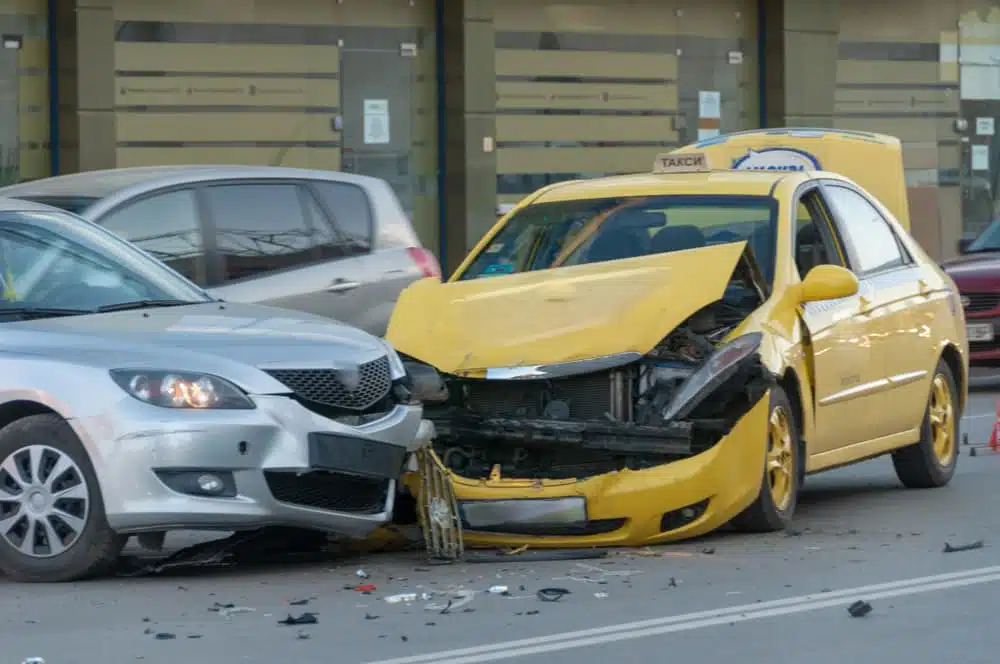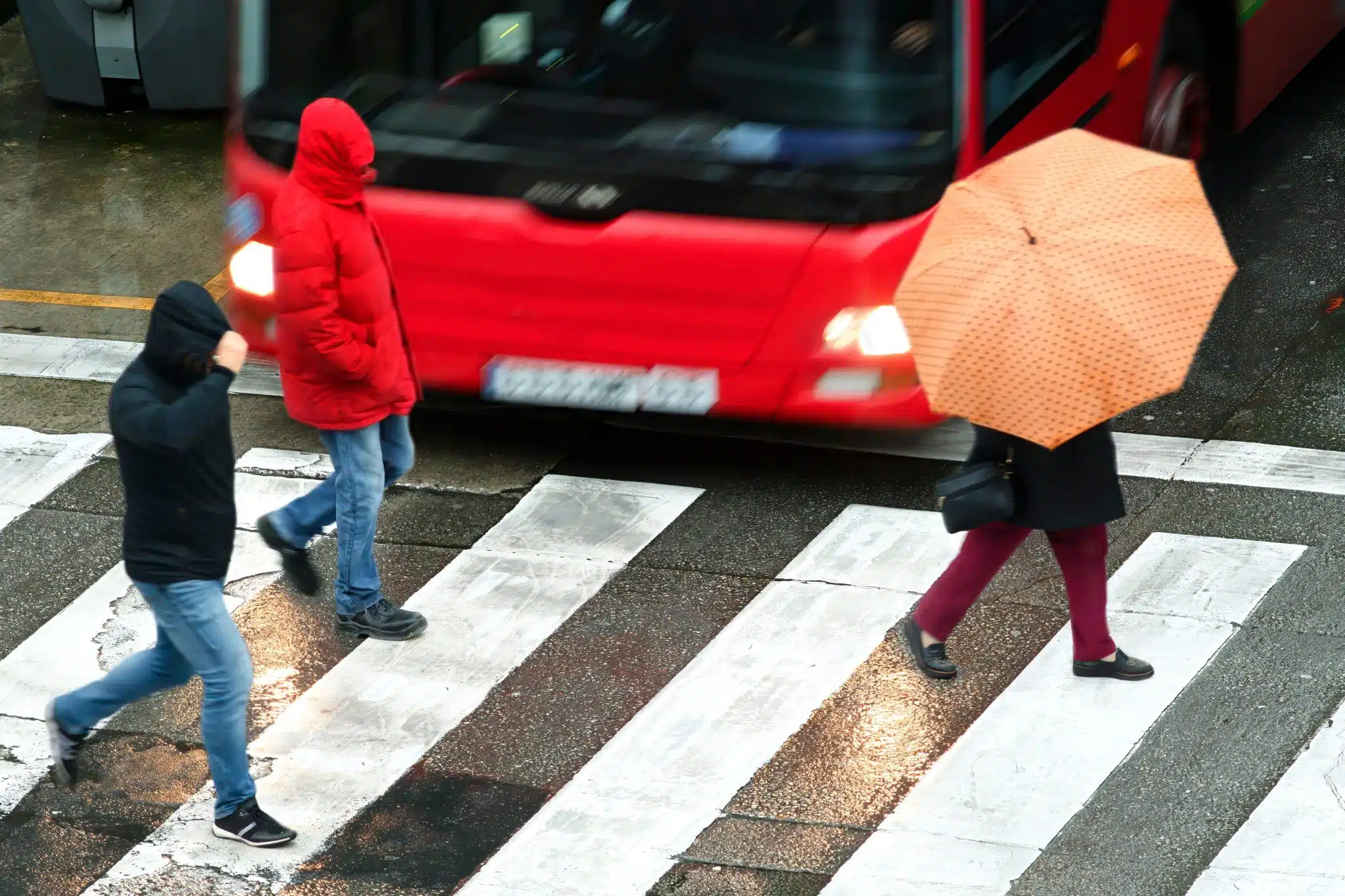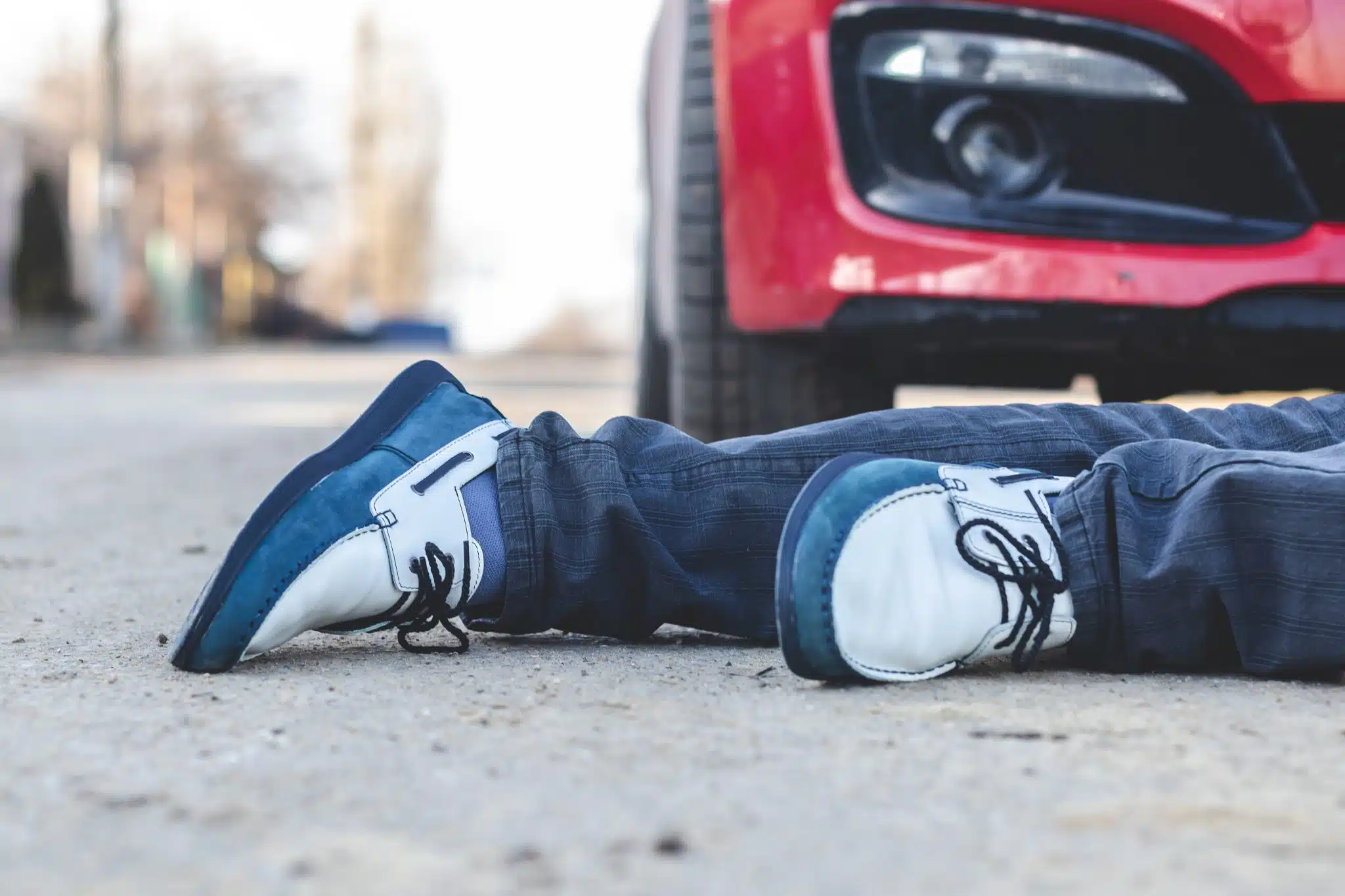
If you’ve been injured in a taxicab accident, you may be wondering how a lawyer can help you recover. An experienced personal injury lawyer can be an invaluable ally, helping you navigate the complexities of insurance claims, state and city taxi regulations, and the process of pursuing fair compensation for your injuries.
Particularly in bustling urban areas like New York City and Philadelphia, where taxicabs are a common mode of transportation, these accidents often involve intricate legal and insurance issues that can be challenging to handle on your own. Rothenberg Law Firm has been advocating for accident victims for over 50 years, securing billions in compensation.
Our compassionate legal team knows how to fight for the rights of taxi accident victims, focusing on motor vehicle accidents to ensure that clients are well-supported, informed, and protected as they seek justice. Auto accidents involving taxis are unique. You need an experienced car accident lawyer to help you build a strong case if you’re injured in a taxi accident.
Why Are Taxicab Accidents More Complicated?
Motor vehicle accidents involving taxis are more complicated than standard car accidents. This complexity arises from several factors, including unique regulations that govern taxis, the multiple insurance policies that may apply, and the challenge of determining liability.
Taxicabs are a highly regulated industry in cities like New York, Philadelphia, and New Jersey areas such as Cherry Hill, Hackensack, and Lakewood. These regulations exist to protect passengers, pedestrians, and other drivers on the road but also create unique challenges in personal injury claims.
Regulatory Compliance
Taxicabs in cities like New York City must follow strict rules and guidelines. Taxi companies and drivers must comply with licensing, safety standards, and operating requirements that do not apply to regular drivers.
The regulations that govern taxicabs can vary significantly between cities. Here’s a quick look at how different jurisdictions approach taxi regulations:
- New York City: The Taxi and Limousine Commission (TLC) sets strict licensing requirements, minimum insurance coverage standards, and driver conduct guidelines.
- Philadelphia: The Philadelphia Parking Authority (PPA) regulates taxi operations, focusing on safety, driver conduct, and vehicle maintenance standards.
- New Jersey: In areas like Cherry Hill and Hackensack, local regulations may apply to taxicabs, and state laws set specific requirements for taxi insurance and passenger safety.
These regulations vary by state and city, adding an extra layer of legal considerations. Working with a lawyer who understands these guidelines and how they impact accident claims is essential.
Insurance Requirements
Taxi companies are generally required to carry more extensive insurance policies than private drivers. For example, New York City mandates that taxicabs have liability insurance that meets or exceeds state minimums, ensuring that injured passengers or others impacted by an accident can seek compensation. For instance:
- Bodily Injury Liability Insurance: Covers injuries to passengers and pedestrians.
- Property Damage Liability Insurance: Covers damage to other vehicles and property.
- Uninsured/Underinsured Motorist Coverage: In some states, taxis must carry uninsured/underinsured motorist coverage, which protects passengers if the taxi driver is not insured or if another driver without sufficient coverage causes the accident.
An experienced taxicab accident attorney understands how these policies apply, how they differ from regular auto insurance, and which policies cover your injuries. Your lawyer will help you sort through these policies, determine which ones apply to your case, and fight for the compensation you deserve.
Determining Liability
Determining who is at fault in a taxi accident can be challenging. Was the accident caused by the taxi driver’s negligence, such as speeding, distracted driving, or running a red light? Or was another party responsible, such as a reckless driver or even a municipal entity responsible for road maintenance?
These questions help your lawyer build a successful claim, which often requires evidence from multiple sources, such as traffic cameras, witness statements, and police reports.
Who May Be Liable in a Motor Vehicle Accident Involving a Taxi?
Liability in a motor vehicle accident may involve multiple parties, each with potential legal responsibilities. Here are some of the primary parties who may be liable in a taxi accident:
Taxi Driver
The taxi driver may be at fault if their negligence contributed to the accident. Common driver-related causes include speeding, distracted driving, improper lane changes, failure to yield, and driving under the influence. If the driver’s actions directly caused the accident, they could be held personally liable.
Taxi Company
The taxi company could be liable if the driver is considered an employee or if the company’s policies contributed to the accident. This includes scenarios where the company failed to maintain the taxi properly, hired unqualified drivers, or failed to train drivers adequately. Taxi companies may also be responsible if they encourage drivers to meet tight schedules or complete more trips, leading to unsafe driving practices.
Vehicle Manufacturer or Maintenance Provider
If a defect in the taxi or a maintenance issue contributed to the accident, the vehicle manufacturer or a third-party maintenance provider could be liable. This could involve faulty brakes, tire blowouts, or defective safety systems. In such cases, product liability laws may apply.
Other Drivers on the Road
Another driver may be partially or fully liable if their actions caused the accident. For example, if a third-party driver suddenly cut off the taxi or ran a red light, they could be held responsible. In multi-vehicle accidents, liability may be divided among several drivers, including the taxi driver and others involved in the collision.
Local Municipality or Government Agency
In some cases, poor road conditions or inadequate signage may have contributed to the accident. If a poorly designed road, lack of appropriate signage, or other unsafe conditions maintained by a city or local government caused the accident, that entity could share liability.
Rideshare Company (if Taxi is Part of a Hybrid Service)
In some metropolitan areas, taxis may partner with rideshare companies to offer services through an app. If the taxi was operating under a rideshare company’s platform at the time of the accident, the rideshare company’s insurance policies or liability agreements may also apply, adding complexity to the liability structure.
What are Some Common Locations Where Taxi Accidents Happen?
Taxi accidents are more likely to happen in high-traffic areas and dense urban environments where taxis operate frequently. Here are some common locations where taxi accidents often occur:
Busy Intersections
Intersections are high-risk locations due to the volume of vehicles, cyclists, and pedestrians. Taxis often have to navigate complex traffic signals, turn lanes, and sometimes erratic movements of other vehicles or pedestrians. Accidents can happen when a taxi driver misjudges a turn or rushes through a light to save time.
Airport Pick-up and Drop-Off Areas
Airports like JFK, LaGuardia, and Newark in the New York and New Jersey areas see a significant number of taxi-related accidents. The constant influx of vehicles and the need for quick drop-offs and pickups can lead to rear-end collisions, sideswipes, and pedestrian accidents.
Hotel and Tourist Areas
Areas with high tourist activity, such as Times Square in New York City or Center City in Philadelphia, often see a large volume of taxis. Quick stops, lane changes, and pedestrian congestion in these areas make accidents more likely as drivers maneuver to pick up and drop off passengers.
Near Public Transit Hubs
Train stations, bus terminals, and subway entrances are hotspots for taxi activity. Places like Penn Station and Grand Central Terminal in NYC or 30th Street Station in Philadelphia experience high volumes of taxis, leading to frequent interactions between taxis, private vehicles, and pedestrians.
Entertainment Districts
Areas with bars, restaurants, theaters, and clubs see high taxi activity, especially at night. In cities like New York and Philadelphia, entertainment districts are common sites for accidents, as taxis frequently stop, pick up, and drop off patrons on busy roads.
Highways and Freeways Near City Exits
Highways and major roads like the Brooklyn-Queens Expressway (BQE) or the Schuylkill Expressway near exits to city centers often experience taxi accidents. Taxis may be merging or exiting quickly to reach their destinations, and frequent lane changes increase the risk of collisions.
Parking Garages and Ramps
Taxi drivers navigating parking garages at airports, shopping centers, or large venues often deal with tight spaces and limited visibility. Collisions are more likely in these confined spaces, especially when drivers are looking for a quick exit.
Residential Neighborhoods with Frequent Pickups and Drop-Offs
Some residential areas, particularly near high-rise apartments or multi-family housing, see frequent taxi activity. Stopping or double-parking for passenger pick-ups and drop-offs on narrow streets can increase accident risk, particularly in densely populated areas.
Bike and Bus Lanes
Accidents can happen in cities with designated bike or bus lanes if taxis use these lanes to bypass traffic. Bicyclists and buses may be in unexpected positions relative to taxis, leading to sideswipes or collisions.
Understanding where taxi accidents commonly occur highlights the importance of caution in these areas, especially when interacting with taxis or other high-traffic vehicles.
Common Types of Injuries in Taxi Accidents
Taxi accidents can result in serious injuries, including:
- Whiplash and Neck Injuries
- Back and Spine Injuries
- Broken Bones
- Head and Brain Injuries
- Soft Tissue Injuries
Each of these injuries may require extensive medical treatment, therapy, and rehabilitation. Working with an experienced lawyer will make you better prepared to recover these costs through a comprehensive personal injury claim.
How Does a Lawyer Help You After a Taxicab Accident?
If you’ve been injured in a taxicab accident, hiring a personal injury lawyer can help you at every step of the claims process. From assessing damages to negotiating with insurance companies, a skilled attorney brings both knowledge and experience to help you obtain the compensation you deserve.
Guiding You Through the Claims Process
The process of filing a claim can be overwhelming, especially for someone dealing with injuries. A lawyer will guide you through each step, ensuring that your claim is filed accurately and on time.
Personal injury claims involving taxi companies often have specific deadlines and procedural requirements that must be followed. Your lawyer will handle these details, allowing you to focus on your recovery.
Negotiating With Insurance Companies
Insurance companies often try to minimize payouts or deny claims outright. A personal injury lawyer will handle all communications and negotiations with insurance companies on your behalf.
For instance, the legal team at Rothenberg Law Firm is well-versed in dealing with insurers and understands their tactics for undervaluing claims. We will fight aggressively to ensure you are compensated fairly for your medical expenses, lost wages, pain, and suffering.
Evaluating All Potential Damages
An experienced lawyer will evaluate your case to determine the full extent of damages, including immediate medical bills and long-term expenses such as rehabilitation, loss of future income, and ongoing pain and suffering. Often, taxi accident victims are unaware of the range of damages they may be entitled to claim, and a knowledgeable attorney will ensure no aspect of your case is overlooked.
Building a Strong Case
To build a strong case, an attorney gathers evidence, speaks with witnesses, and, if necessary, consults accident reconstruction experts. Building a persuasive case may also involve reviewing traffic camera footage, police reports, and even the taxi’s maintenance records. Rothenberg Law Firm has the resources to conduct a thorough investigation and create a compelling argument to hold the responsible party accountable.
Why Choose Rothenberg Law Firm?
With over 50 years of dedicated service, Rothenberg Law Firm deeply understands motor vehicle accidents, especially those involving complex commercial entities like taxi companies. We have obtained billions in compensation for our clients, fighting for their rights every step of the way. Here’s how our firm can make a difference in your case:
- Resource-Rich Legal Support: We have the resources to conduct in-depth investigations, consult with experts, and build a compelling case on your behalf.
- Experienced Negotiators: Our attorneys are skilled in negotiating with insurance companies and will not settle for less than you deserve.
- Compassionate Representation: We understand the stress and challenges of recovering after an accident, and we are here to support you with empathy, understanding, and legal strength.
Contact an Experienced Taxi Accident Attorney at The Rothenberg Law Firm
If you or a loved one has been injured in a taxicab accident, don’t navigate this challenging process alone. The Rothenberg Law Firm’s personal injury attorneys are here to help you understand your rights, build a strong case, and fight for the compensation you deserve.
We have served clients for over 50 years, recovering billions in settlements and verdicts, and are committed to helping accident victims rebuild their lives. Contact us today for a free consultation and let us help you pursue the justice and compensation you deserve. Call us at 800-624-8888 or contact us online to get started.



